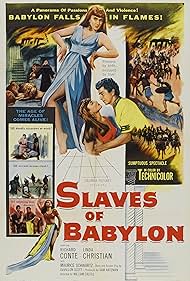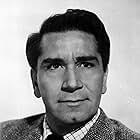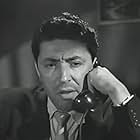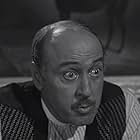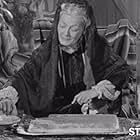In ancient times, a Jew is instrumental in the crowning of a new Median-Persian king who, in return, conquers Babylon and frees all the Jewish slaves.In ancient times, a Jew is instrumental in the crowning of a new Median-Persian king who, in return, conquers Babylon and frees all the Jewish slaves.In ancient times, a Jew is instrumental in the crowning of a new Median-Persian king who, in return, conquers Babylon and frees all the Jewish slaves.
Terry Kilburn
- King Cyrus
- (as Terrance Kilburn)
Julie Newmar
- Dancer-Assassin
- (as Julie Newmeyer)
Ernestine Barrier
- Mandane - Cyrus' Real Mother
- (uncredited)
Michael Fox
- Narrator
- (voice)
- (uncredited)
- Director
- Writer
- All cast & crew
- Production, box office & more at IMDbPro
Storyline
Did you know
- TriviaAt least three of the cast appeared in other bible movies as well. Maurice Schwartz played an advisor to King Herod Antipas in Salome (1953), the same year he made this film. Richard Conte went on to play Barabbas in The Greatest Story Ever Told (1965). Michael Ansara had a bit part as Herod's Commander in The Greatest Story Ever Told (1965) and as a taskmaster in The Ten Commandments (1956).
- GoofsThe Star of Remphan, which Daniel wears as a symbol of the Israelites is in fact a Pagan symbol that represents the god Saturn.
- ConnectionsReferenced in Biography: Julie Newmar: The Cat's Meow (2000)
Featured review
Like many of the Katzman-Castle films of this era, Slaves of Babylon renders the color process a gimmick by purveying it through a hollow vehicle. This film is the hole in the biblical doughnut. The acting is poor (comical, in fact) and the dialogue is wasteful in service of irritating 'bible-speak' quips. I won't split hairs on the use of Stars of David embroidery for all Jewish characters, but will mention that the history is off by over a thousand years. As for Castle's direction, there are some moments of mobile framing and oblique staging, but they seem to remain in service of promoting the color process itself (Nahum at the river). Dramatic scenes are continuously cut short or dealt with indifferently from the point of direction. The most absurd example of this indifferent direction is when future King Cyrus is told by his father that his mother was raped to conceive him... we don't even get a front view of Cyrus at any point during this reveal! Continuous high and low angle framing never clarifies its purpose as being that of a transcendental historical subject or a diegetic critic of the relationship of servant and master. Needless to say, this film is the epitome of anti-dramatic and is conflated with inconsistency in tone, pace and sense of itself as a text. The mise-en-scene is too tableau to be considered painterly. The painted backdrops are positioned to announce themselves confidently as fake. There is a theme of tapestry in this film and that is perhaps the only true thing about the story. With no depth perceivable, I would have to remark the only single vanishing point as being the interest of the audience member.
- LobotomousMonk
- Feb 23, 2013
- Permalink
Details
- Runtime1 hour 22 minutes
- Aspect ratio
- 1.37 : 1
Contribute to this page
Suggest an edit or add missing content

